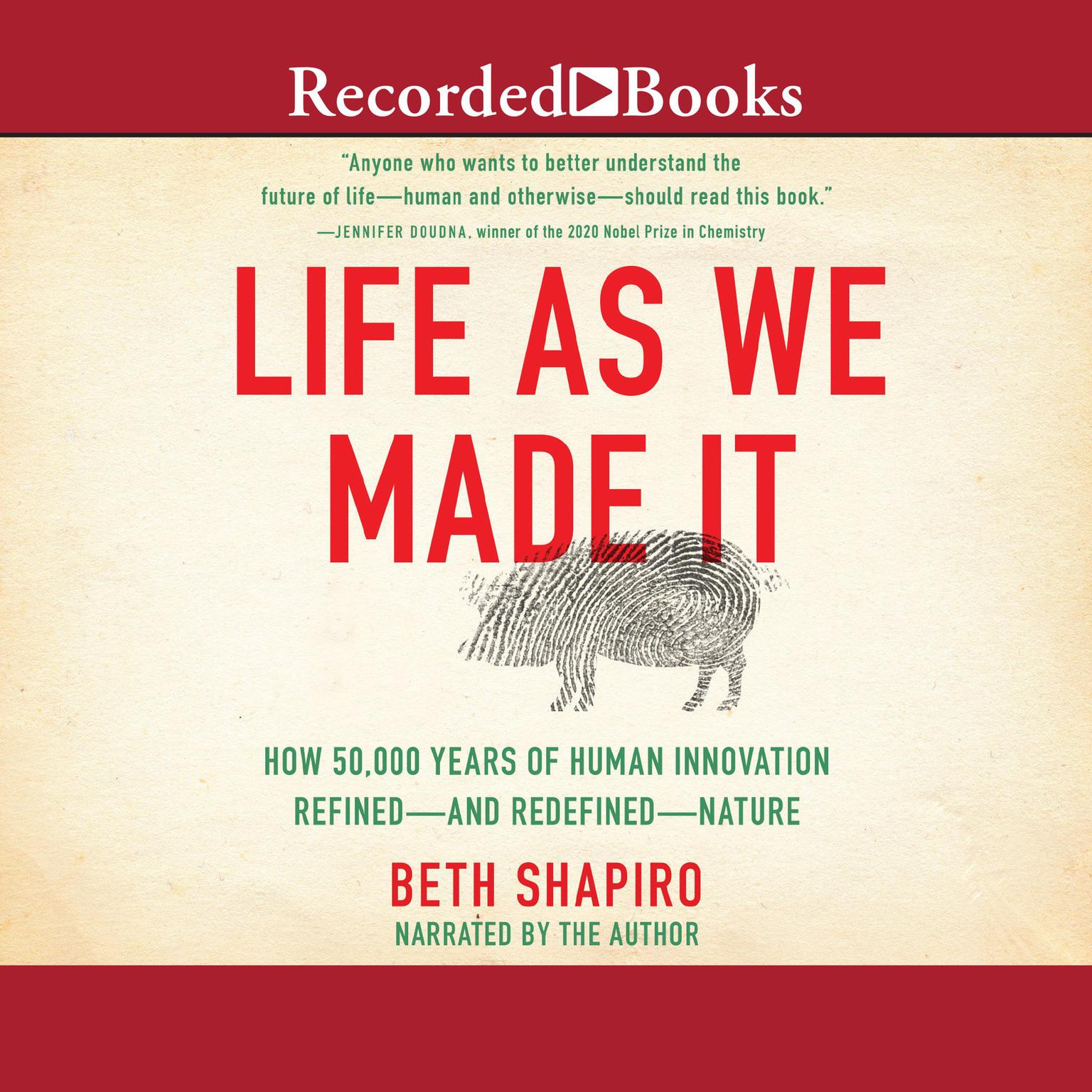 Play Audiobook Sample
Play Audiobook Sample
Life as We Made It: How 50,000 Years of Human Innovation Refined—and Redefined—Nature Audiobook
 Play Audiobook Sample
Play Audiobook Sample
Quick Stats About this Audiobook
Total Audiobook Chapters:
Longest Chapter Length:
Shortest Chapter Length:
Average Chapter Length:
Audiobooks by this Author:
Publisher Description
In 2020, the inventors of CRISPR, the revolutionary gene-editing tool, won the Nobel Prize for medicine. It seemed like the capstone of an astounding fifty-year run: we have turned bacteria into factories for insulin, used viruses to insert genes for pesticide resistance into plants, and now learned to rewrite our own DNA. Once, we humans could only observe evolution. Suddenly, we had conquered it.
And yet, in Life as We Made It, evolutionary biologist Beth Shapiro argues that—despite how amazing our new technologies are—our ability to alter the course of evolution isn’t new. Humans have been reshaping the world around us for ages, from the first dogs to genetically modified Enviropigs. Indeed, she argues, resetting the course of evolution is what our species does, by domesticating, as with dogs and wheat; by hunting, as with wolves and mammoths; and by protecting, as with bison and mountain lions.
What is new is that where once we shaped evolution through brute force, we can now do it as artisans. That power comes not a moment too soon. If we are going to survive in the next few centuries, we must revise the book of life. Instead of rehashing arguments about genetic engineering, let’s embrace the fact that we can shape evolution to create a world in which we want to live. The question isn’t should we meddle, but how? Life as We Made It is an essential book for charting a better course into a risky future.
Download and start listening now!
Life as We Made It Listener Reviews
Be the first to write a review about this audiobook!
About Beth Shapiro
Beth Shapiro is a professor of evolutionary biology at the University of California, Santa Cruz, where her work has centered on the analysis of ancient DNA. The author of How to Clone a Mammoth, which won the AAAS science writing award, she lives in Santa Cruz, California.


